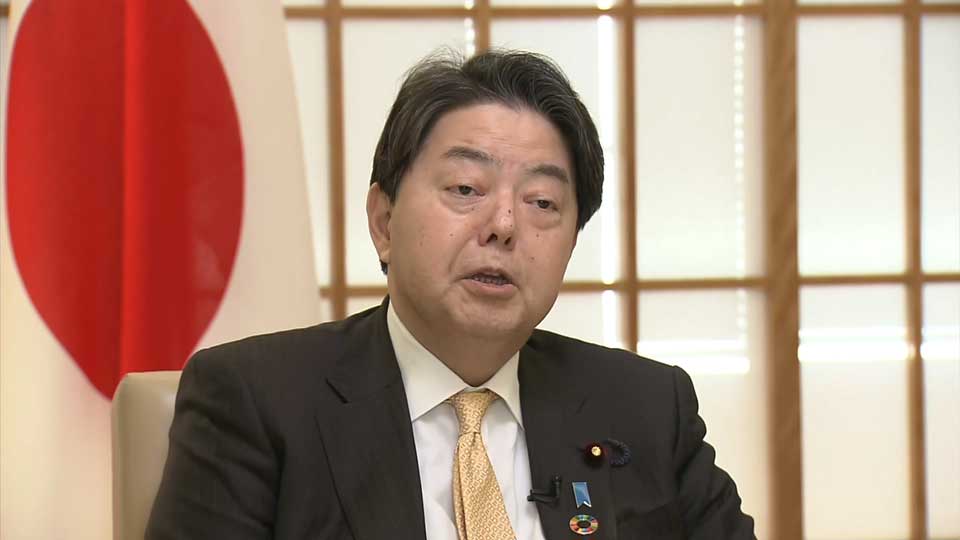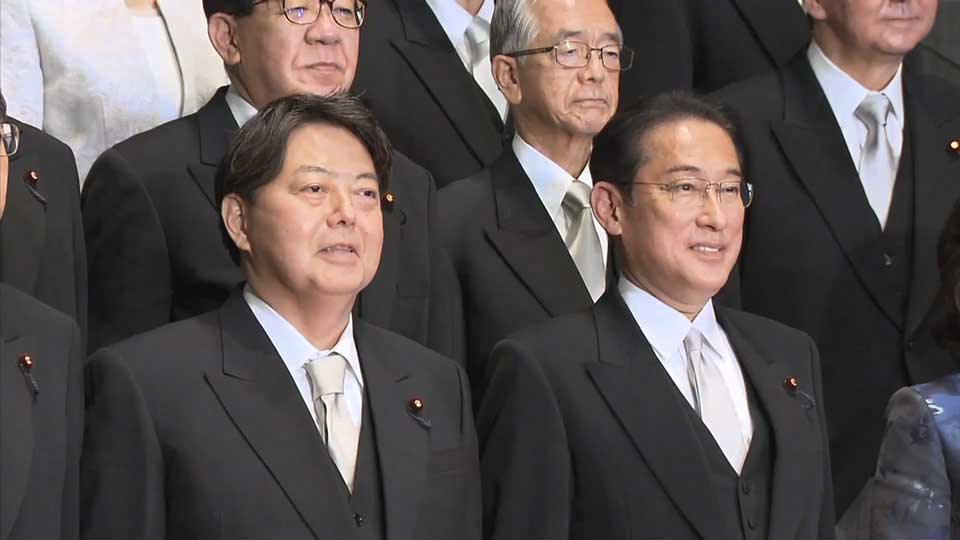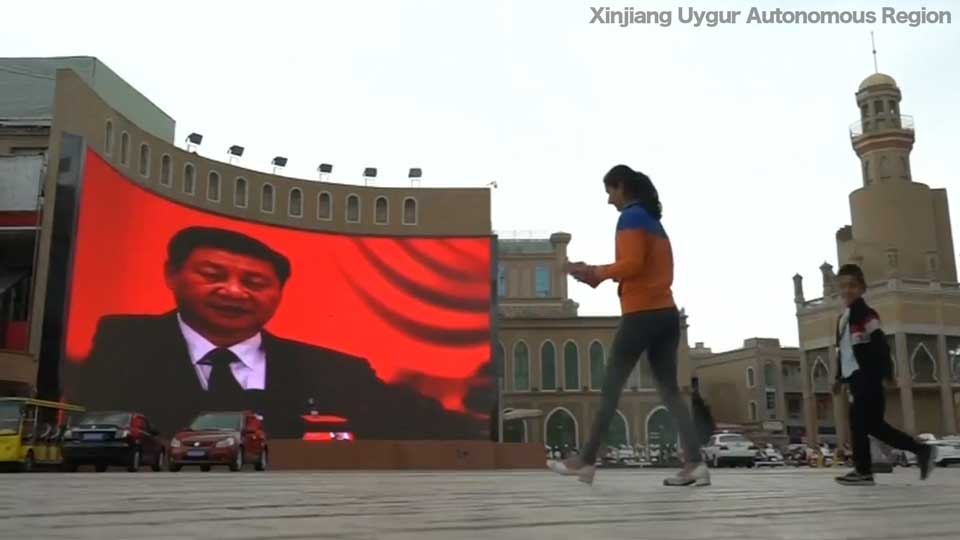The 60-year-old Foreign Minister is the lead singer, guitarist, composer and lyricist for Gi!ns, a rock band composed of members of the Diet, and he had a chance to show his skills on a recent trip to the UK.
While the G7 Foreign Ministers were touring a Beatles museum in Liverpool, Hayashi performed a rendition of "Imagine" on a replica of John Lennon's grand piano.

NHK World: Many people might say [that was] a more human face on Japanese diplomacy. How do you think you can use your individuality to steer Japanese foreign affairs in the year 2022?
Hayashi:
"Thank you for touching upon my playing piano. It was very nice that people in the museum and also my fellow G7 ministers put me on the spot. And the visit to the UK brought home to me the importance of building personal trust through face-to-face meetings and deepening mutual understanding over candid discussions on issues facing the international community.
So, I will start in-person diplomacy and further strengthen the trust that Japan has earned through endeavors of all our previous generations."

Hayashi's knack for international relations was nurtured as a businessman. After graduating from the University of Tokyo and joining trading house Mitsui & Co. in 1984, he was assigned to a section handling tobacco.
His job was to travel across Asia and Latin America negotiating deals. Later, he studied at Harvard University's John F. Kennedy School and worked as a congressional aide.
NHK World: Now, on Japan-China relations. As [China] continues to grow militarily and economically, what kind of new approach can Japan take in dealing with these issues?
Hayashi:
"China's expansion of military capabilities without transparency and its attempts to unilaterally change the status quo and increased military activities in the East and South China Seas have become strong security concerns for the region and the international community.
So we will resolutely convey our concerns to China by working with other countries that share universal values and using high-level engagement opportunities with China. We will continue to urge China to act responsibly.
At the same time, China is our neighbor and the largest trading partner for Japan, so we will continue dialogue and cooperation on matters of common interest. So we think it's very necessary to build constructive and stable Japan-China relations."

Hayashi was first elected to the Upper House in 1995. He has won five elections and served as both defense and education minister, earning a reputation as a policy expert. He resigned as a member of the Upper chamber and successfully ran for the Lower House election last October.
Prime Minister Kishida Fumio picked him as his foreign minister last November, and he is now seen as a potential future leader himself.
Hayashi was formerly chairman of the Japan-China Friendship Parliamentarians' Union. But he stepped down when he was appointed foreign minister, likely because he was wary of being painted as "pro-China" at a delicate time in relations between Tokyo and Beijing.
The interview took place on the day Japan announced it would not be sending a government delegation to the Beijing Olympics.
NHK World: Can we say this is a diplomatic boycott?
Hayashi:
"The government of Japan doesn't intend to use any specific terms to describe our response."
NHK World: How will the Japanese government specifically respond to China's human rights issues?
Hayashi:
"I think it is very important that universal values in the international community, such as freedom, respect for fundamental human rights, and the rule of law, [are] also guaranteed in China. Japan has directly conveyed this position to China at various levels, including [via] myself.
So Prime Minister Kishida actually lays his concerns over the situation in Hong Kong and the human rights situation in Xinjiang with President Xi during their October summit phone call. I also expressed serious concerns on the same issues to State Councilor Wang Yi during the November phone call.
And at the G7 foreign ministers meeting, which I attended recently, I raised serious concerns over the situation in Hong Kong and human rights situation in Xinjiang.
So we think it's very important for the international community to continue to work closely together to strongly urge China for its actions."

NHK World: How do you view the security environment in East Asia surrounding Japan? How will Japan promote cooperation with its ally the United States?
Hayashi:
"Security environments surrounding Japan are becoming even more severe due to various factors which includes, number one, North Korea's nuclear and missile development; number two, China's rapid expansion with military capacities without transparency, and its attempt to unilaterally change the status quo by force in the East and South China Seas; and then the proliferation of weapons of mass destruction and the growing threat of terrorism; and four, the emergence of risks and challenges in new domains such as cyberspace and outer space.
Based on these understandings, Japan will bolster its defense capabilities and expand its law and further enhance the deterrence and response capabilities of the Japan-US alliance in order to ensure the security of Japan as well as peace and stability of the regions."

